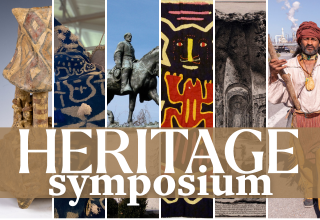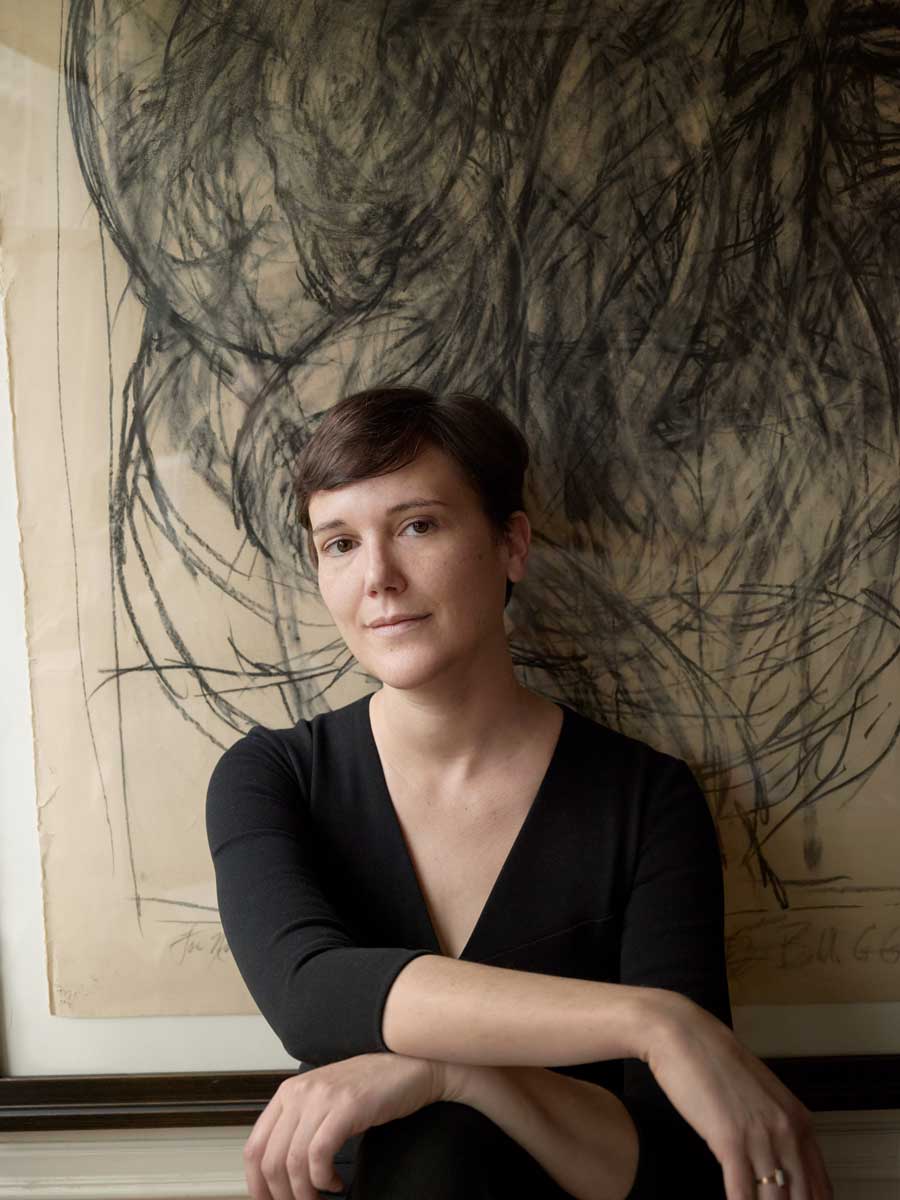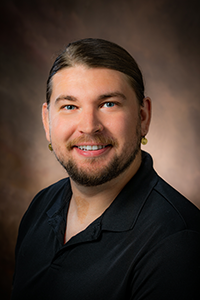
In conjunction with the current exhibition, Heritage: Shaping Past, Present, Future a two-day symposium is being held at the Richard and Carole Cocks Art Museum (RCCAM) at Miami University. Participation is free and attendees will have the opportunity to thoroughly engage with themes and artworks in the exhibition through a series of talks and panel discussions. The symposium starts on the afternoon of Thursday, October 5 with an evening keynote, followed by Friday October 6 morning sessions and a closing talk.
Hear from subject matter experts on themes ranging from myths to monuments to Artificial Intelligence, associated with an array of cultural topics and regions from the archaeology of Mesoamerica, ancient Greece and Rome, Miami University architecture, Myaamia cultural revitalization, Freedom Summer, and African Art. Drawing on content within the exhibition and their own research, speakers will move beyond static representations of art and culture - showing how artists, architects, and craftspersons play an important role in mediating tradition and socio-cultural change over deep time.
 One of the highlights of the symposium is a keynote presentation taking place on Thursday, October 5 at 4:30 PM entitled Monumental Change: Recent Responses to Controversial Sculptures in America by Erin L. Thompson, America’s only professor of art crime. Thompson teaches at the City University of New York and holds a PhD in Art History and a law degree. She studies the deliberate destruction of art, analyzing the ways in which this destruction has sometimes harmed and sometimes benefited communities. She has spoken about monuments controversies with outlets including the New Yorker, New York Times, CSPAN, and “The Today Show.” Her book Smashing Statues: The Rise and Fall of American Public Monuments, was published by Norton in 2022. As part of this keynote, Erin Thompson will be in conversation with Professor Mary Rogero of Miami University’s Department of Architecture and Interior Design. Many controversial U.S. sculptures have been removed from public display in recent years, often being moved elsewhere or are awaiting reinstallation. Erin Thompson will summarize some of the surprising (and discouraging) facts about what really changed from 2020 to the present, explaining the legislative changes, lawsuits, and other factors that are keeping even the most controversial American monuments on view. This keynote is sponsored by the Miami University Humanities Center, the College of Creative Arts, the Department of History and the Art Museum’s Miriam W. Howard Fund.
One of the highlights of the symposium is a keynote presentation taking place on Thursday, October 5 at 4:30 PM entitled Monumental Change: Recent Responses to Controversial Sculptures in America by Erin L. Thompson, America’s only professor of art crime. Thompson teaches at the City University of New York and holds a PhD in Art History and a law degree. She studies the deliberate destruction of art, analyzing the ways in which this destruction has sometimes harmed and sometimes benefited communities. She has spoken about monuments controversies with outlets including the New Yorker, New York Times, CSPAN, and “The Today Show.” Her book Smashing Statues: The Rise and Fall of American Public Monuments, was published by Norton in 2022. As part of this keynote, Erin Thompson will be in conversation with Professor Mary Rogero of Miami University’s Department of Architecture and Interior Design. Many controversial U.S. sculptures have been removed from public display in recent years, often being moved elsewhere or are awaiting reinstallation. Erin Thompson will summarize some of the surprising (and discouraging) facts about what really changed from 2020 to the present, explaining the legislative changes, lawsuits, and other factors that are keeping even the most controversial American monuments on view. This keynote is sponsored by the Miami University Humanities Center, the College of Creative Arts, the Department of History and the Art Museum’s Miriam W. Howard Fund.
 Jared Nally of the Miami Tribe of Oklahoma and Myaamia Center at Miami University will speak on the morning of October 6 on the topic of Culture as Living Memory: Picking up the Threads of Myaamia Weaving, which draws on his experience in revitalizing Myaamia traditions of weaving, as represented in a panel bag made by the artist and displayed within the Heritage exhibition. As Nally writes in his abstract: “My hands hold memory as a weaver — muscle memory takes over as my hands talk to the threads, but there is another, much older memory that is part of my craft. Culture and heritage transmit generations of memories. These memories are what I find most important in engaging in heritage arts. Culture teaches us how we live in the world as a People, and understanding that has shaped many new ecological relationships for me as I began picking up the threads of Myaamia weaving.”
Jared Nally of the Miami Tribe of Oklahoma and Myaamia Center at Miami University will speak on the morning of October 6 on the topic of Culture as Living Memory: Picking up the Threads of Myaamia Weaving, which draws on his experience in revitalizing Myaamia traditions of weaving, as represented in a panel bag made by the artist and displayed within the Heritage exhibition. As Nally writes in his abstract: “My hands hold memory as a weaver — muscle memory takes over as my hands talk to the threads, but there is another, much older memory that is part of my craft. Culture and heritage transmit generations of memories. These memories are what I find most important in engaging in heritage arts. Culture teaches us how we live in the world as a People, and understanding that has shaped many new ecological relationships for me as I began picking up the threads of Myaamia weaving.”
 Another visiting speaker is artist Daniel R. Small, a Los Angeles based artist and filmmaker, who will present Future Pasts - The Radical Openness of AI in an Expanded Field. This artist’s talk will focus on the creation of the short AI generated animation, Myth of the Divine, a recent Art Museum acquisition on display in the Heritage exhibition. As part of this talk, taking place on October 6, Daniel R. Small will discuss an expanded network of relations from indigenous epistemologies and their relationships with Artificial Intelligence and Natural Language Processors as well as how divination plays a role in both the creation and reception of data-based AI representations. Small's work is highly relevant given increased recent focus on the role of AI in art and text-based creative outputs, permitting us to question the authenticity of cultural heritage and memory.
Another visiting speaker is artist Daniel R. Small, a Los Angeles based artist and filmmaker, who will present Future Pasts - The Radical Openness of AI in an Expanded Field. This artist’s talk will focus on the creation of the short AI generated animation, Myth of the Divine, a recent Art Museum acquisition on display in the Heritage exhibition. As part of this talk, taking place on October 6, Daniel R. Small will discuss an expanded network of relations from indigenous epistemologies and their relationships with Artificial Intelligence and Natural Language Processors as well as how divination plays a role in both the creation and reception of data-based AI representations. Small's work is highly relevant given increased recent focus on the role of AI in art and text-based creative outputs, permitting us to question the authenticity of cultural heritage and memory.
Additional presenters and their topics, exploring past, present, future, include:
- Kathleen Lynch (University of Cincinnati, Department of Classics) ~ The Heritage of Storytelling and Mythmaking: Connecting Past to Present
- Jeb Card (Miami University, Department of Anthropology) ~ Myth, Disruption and Heritage in Mesoamerica
- Andrew Casper (Miami University, Department of Art) ~ Ancient Heritage Remembered: Representations of the Ruins of Rome
- Jacqueline Johnson (Miami University, University Archivist and Principal Librarian) History of the Freedom Summer Memorial on Western Campus
- Robert Keller (Retired, former Miami University Architect); Charles Cellarius – Miami’s Architect
- Jordan Fenton (Miami University, Department of Art) Performing Heritage in Nigeria: The Artistic Philosophy of the Ekpe Nkanda Masquerade
For the full schedule, to read the abstracts, and learn more about each of the sessions and featured speakers, and to register to attend the symposium page on our website at tinyurl.com/heritagesymp23.
The Richard and Carole Cocks Art Museum (RCCAM) is grateful to all the speakers and for support from the Miriam W. Howard Fund at the Art Museum, the Humanities Center, the College of Creative Arts, and the Department of History at Miami University. We are also grateful to other academic partners, including the Department of Art, Department of History, Department of Architecture and Interior Design, and Department of Entrepreneurship, Technology and Business in Design at Miami University.